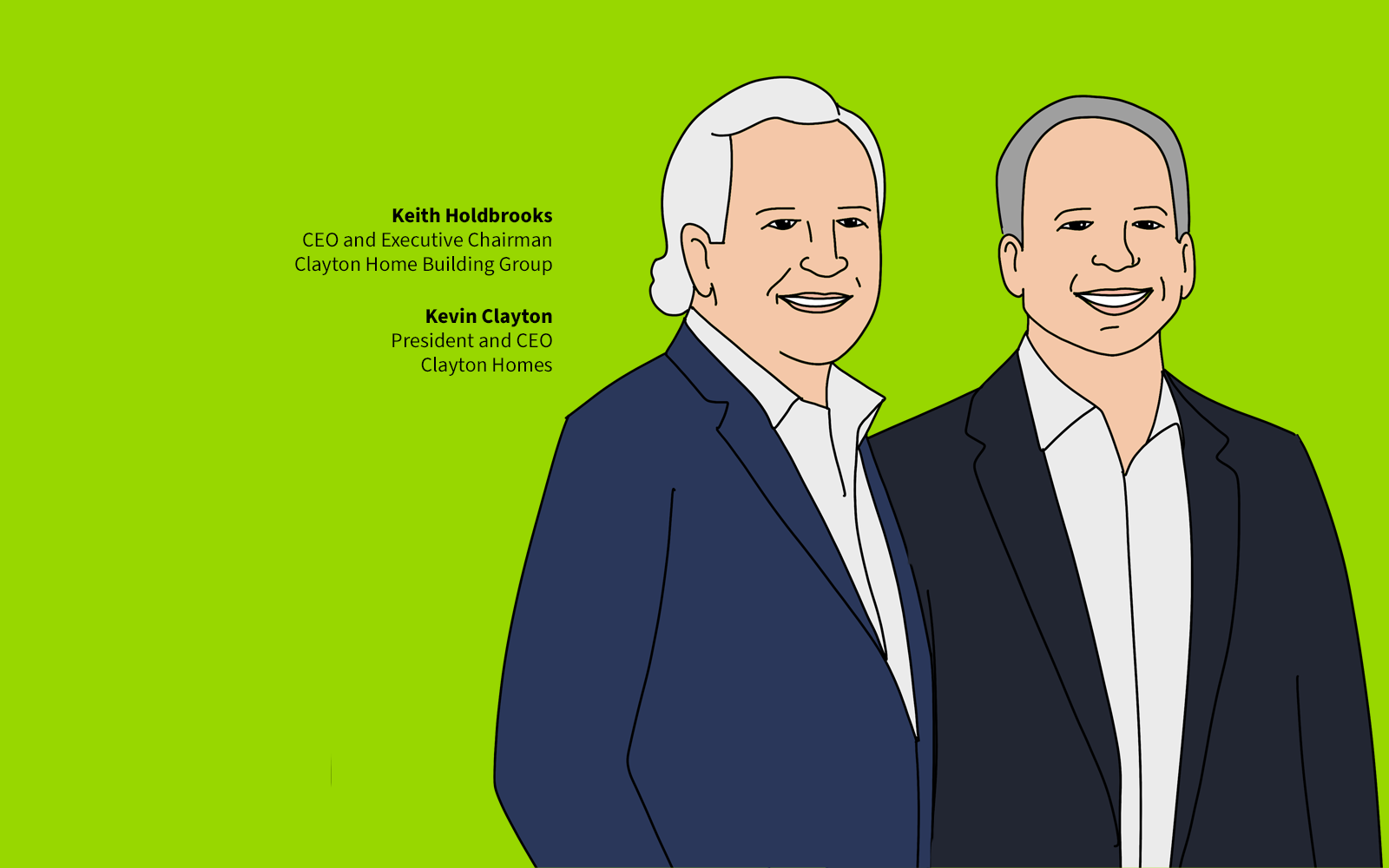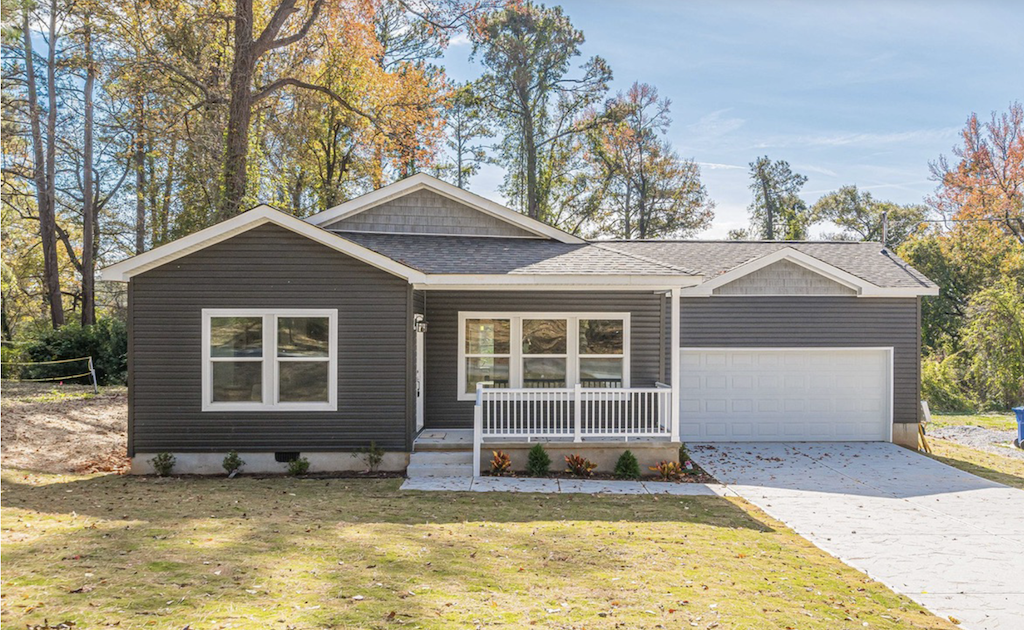Leadership
Clayton Breaks New Ground As Urban Infill Builder-As-A-Service
Housing innovation doesn't just disrupt the cost of building; it disrupts the cost and value of owning.

Housing's biggest challenges don't thwart progress in isolation, they team up. They break apart efforts to solve them from all angles. They connect, interrelate, interdepend, and helically nourish one another. And altogether, they thread into the woven fabrics of society, capital, human and natural laws, and our deepest beliefs and values around home.
Solutions for those flashpoint housing challenges – attainable access, climate and economic resiliency, sustainable, healthy homes and communities, and a renewable bloodline of talented human solutions seekers, operators, and frontline team members – are only ever real when they add up to an amalgam of capabilities that bring these swirling inertial powers together and defuse them.
In this sense, innovation is not simply a transformative building technology process, as much as that counts in the equation of expanding the access box for working households to attain decent housing in the vicinity of their livelihoods.
Rather, it's the transformation of the entire development and building lifecycle, from the dirt to the banks to the construction and assembly to the financing and the holistic operating costs of the home.
In this context, a press release today breaks through the noise, and so doing, speaks volumes.
The News
Clayton, a leading national builder of single-family attainable housing, partnered with Georgia Manufactured Housing Association to unveil a new urban infill project showcasing two Clayton Built® CrossMod homes developed by Iron Horse Communities, the first of their kind within the Atlanta perimeter." – Clayton Homes, press release
Let's unpack Clayton's home construction-and-assembly-as-a-solution for developers and investors through the lens of an amalgam – a fusion of solutions that make an American Dream of homeownership a reality for more people in more households. Added together, this blend of solutions bends cost curves toward more working households, and they bend the arc of capability for those households upward to allow them attain homeownership and thrive within it.
Here's two paragraphs from the press statement that checks off on construction technologies, local zoning policy, and Fannie and Freddie-compliant mortgage lending access that price more households into a manageable realization of the homeownership Dream.
As the housing shortage in the United States persists, home builders like Clayton are identifying innovative solutions to help families achieve homeownership. CrossMod homes are built off-site in home building facilities and finished on-site with a foundation, garage and porches. The city of Atlanta allows off-site built homes within city limits so long as the homes are secured to a permanent foundation. This zoning ordinance is an example of flexible legislation that can increase attainable homeownership opportunities in high-growth cities across the country.
Urban infill solutions allow single-family home builders like Clayton to develop previously vacant properties within established neighborhoods, opening up more housing opportunities in densely populated cities without putting a burden on existing infrastructure and resources. The two homes, which match the scale and aesthetics of existing homes in the area, blend seamlessly into the surrounding neighborhood.
Here's the Clayton recipe mix of housing solutions that lower barriers for households, and elevate both the sustainability and learning and improvement virtuous cycles of the barrier-lowering systems.
- Cost curves: Factory construction and assembly save time, wasted materials, construction defects, weather impacts, and frontline worker inefficiency.
- Total operating costs: Clayton's proprietary eBuilt homes – measuring up to U.S. Department of Energy’s Zero Energy Ready Home™ specifications – operate at an estimated 50% of the energy cost of typical homes of similar sizes, saving homeowners every year of ownership.
- Finance and appraisal: CrossMod homebuyers qualify for mortgage finance and appraisals identical to site-built homes.
- Job center proximity: Clayton's work with Georgia Manufactured Housing Association and local Atlanta municipal officials and agencies clears a path to a win-win-win for neighborhoods demanding aesthetic and quality attributes of a site-built home, city officials requiring code compliance, and households that can save money on commuting and transportation costs.

Per the press statement:
Atlanta is an example of a city allowing innovative housing solutions to help promote the Yes In My Back Yard (YIMBY) movement, which advocates for increasing housing supply in cities where housing has become unaffordable, and provide a path for attainable homeownership,” said Ramsey Cohen, Director of Industry and Community Affairs at Clayton. “It is critical that we find ways to increase attainable homeownership in cities across the nation, and the acceptance of CrossMod in Atlanta is a major step toward accomplishing that goal.”
In an earlier piece on Clayton Homes, we wrote:
Scores of new companies, pioneering companies, extraordinarily talented and energized companies have started-up in the past dozen or so years in the homebuilding technology space, promising to fill that void, to work at housing affordability's nexus of apples and oranges.
Many of them are in early, or medium-phase stages of their business model and operational development. In today's capital investment risk environment, many of them are in a race with time because they're up against a common predicament: they've got to scale to become profitable; and if they don't become profitable, they're runway to scale will be cut short.
One company – a strapping 67-year-old producer of homes – already stands at that nexus, where apples and oranges belong in the same consideration set: It is a Berkshire Hathaway company called Clayton Homes, whose ceo is 59-year-old Kevin Clayton.
Last week's Veev story reminded us again, to solve for housing's hardest, most chronically stubborn problems, you've got to zero in on a solution that puts them all into sync.
Underneath all of this, where Clayton stands apart from all of the other technology and manufacturing-powered start-ups that aim to make the world better by making housing affordable is this.
Those vaunted startups are mostly trying to disrupt and transform the cost of building.
What Clayton does – and does so profitably, sustainably, and in an operation that considers both team members and customers as equal priorities – is to disrupt the cost of owning.
MORE IN Leadership
10 Bold Ideas Tackling Housing Affordability And Access Now
From AI to hempcrete, these 10 ideas show how innovation in design, finance, and policy can open the door to housing affordability.
Sumitomo Forestry Sharpens U.S. Focus With DRB Move
Strategic clarity replaces portfolio sprawl as Sumitomo bets big on U.S. scale and integration.
Homebuilders and Insurance: A New-Reality Cost To Stay Ahead
Exclusive insights from Westwood Insurance Agency’s Alan Umaly and MSI’s Naimish Patel reveal why homebuilders must rethink insurance, resilience, and risk management—or risk losing buyers in an increasingly volatile market.
